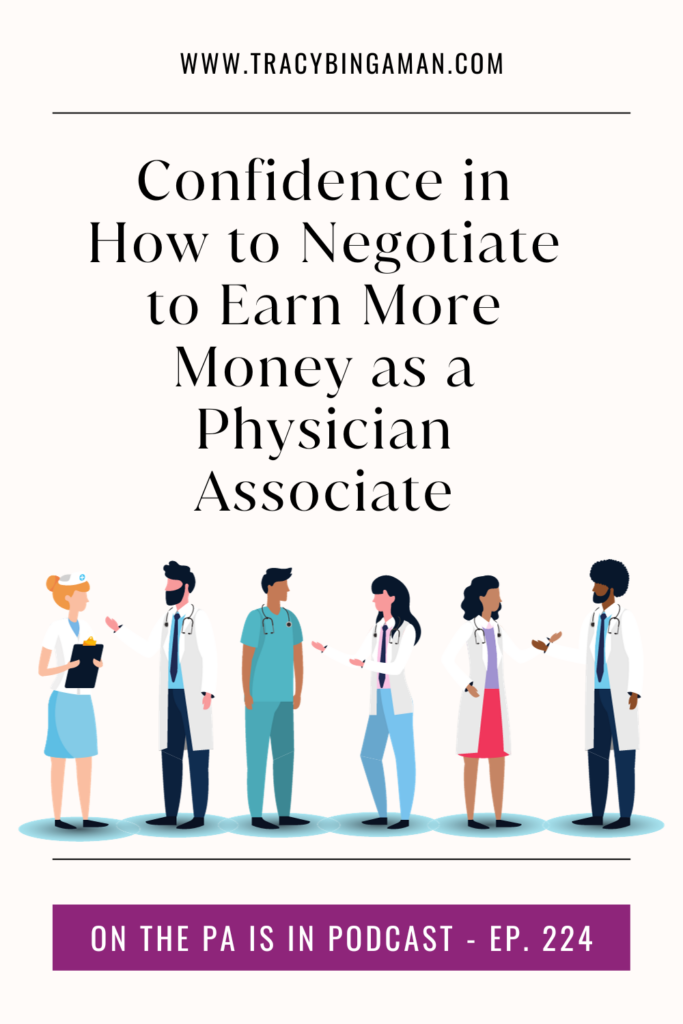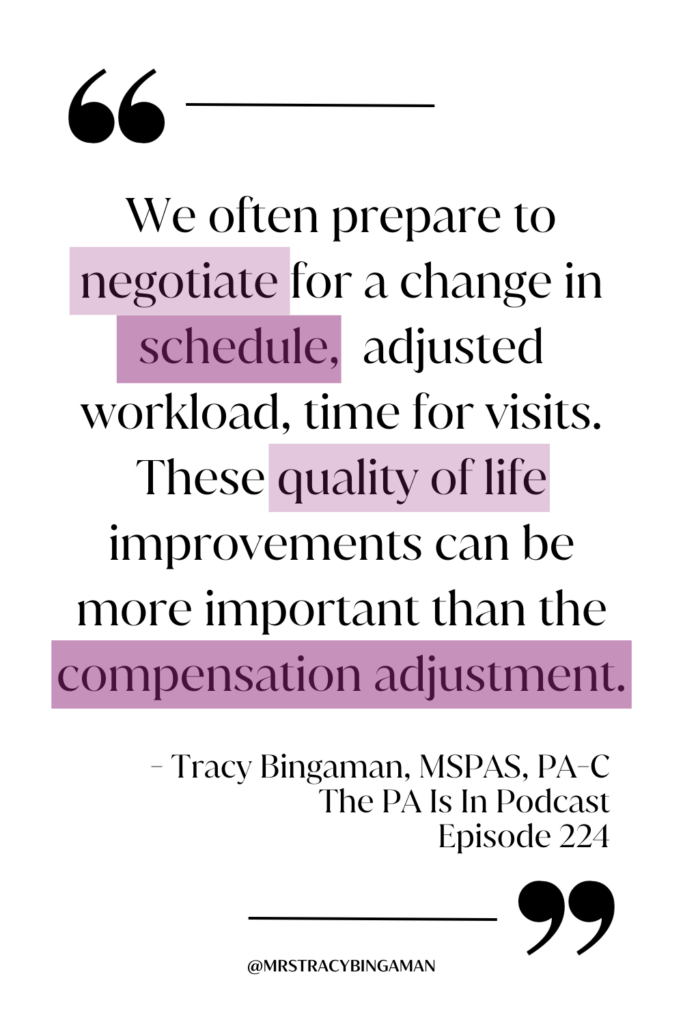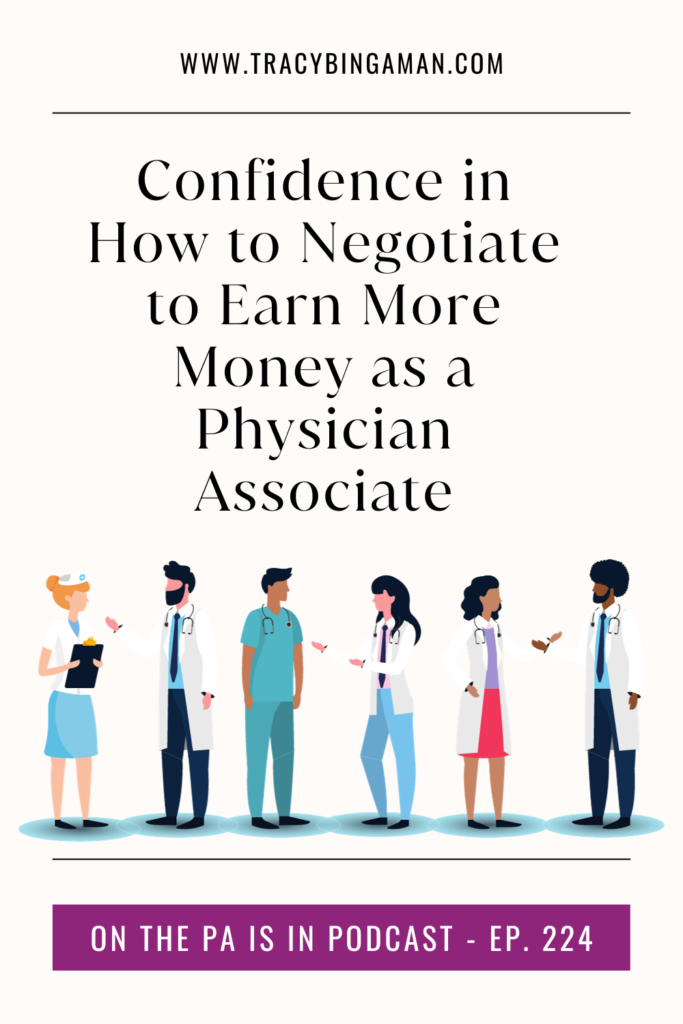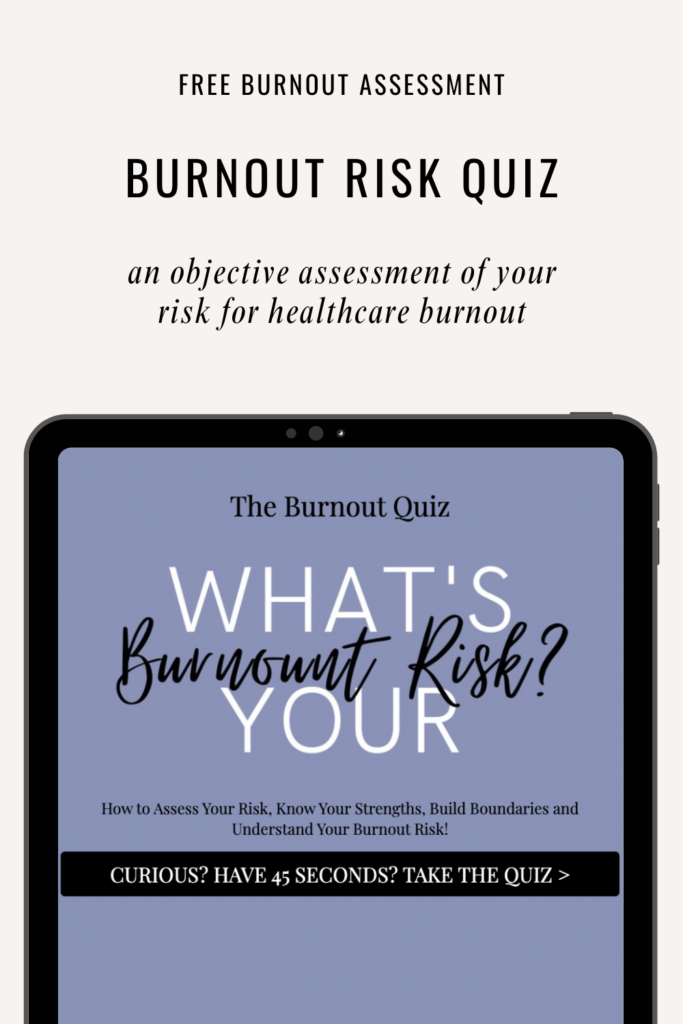Why Negotiation Matters
When we graduate from PA school, passing our didactic and clinical skills, surviving clinical rotations and passing the PANCE, we are still lacking in a very important skill: negotiating.
It’s been said that PA school is like drinking from a fire hose because the sheer volume and speed of information that is disseminated is, well, lots and fast, not unlike the water that rushes out of a fire hose on full blast.
We simply don’t have the time or capacity to dive deeply into the topic of negotiation. It’s not a clinical skill and it won’t be tested on the PANCE, so it doesn’t make the cut in the rigorous curriculum taught at most PA programs.
Despite it not being covered in depth in our curriculum, we do need to know how to negotiate. Negotiations, even if they make us nervous, are essential in propelling our career and compensation forward.
Without skills to negotiate effectively, we can be left feeling unfulfilled, undercompensated and stuck.
I help PAs to gain those negotiation skills and strategies so that they can earn a paycheck they are proud of, regardless of location in the country or specialty that they work in. We do this through an hour-long negotiation consult, which I’ll link in the show notes, and discuss in detail later on in the episode.
Today I’ll cover what you can expect from a negotiation consult, what you leave with, some of the most common negotiation consult takeaways, and reasons to book a negotiation consult.
Watch on YouTube

Common Takeaways from Negotiation Consults
I’m going to answer four questions in this episode:
- What is a negotiation consultation like?
- What will you leave with?
- What are the most common negotiation consult takeaways?
- What are reasons to book a negotiation consultation?
First, What to Expect from a Negotiation Consult
Negotiation consults are an hour-long zoom or phone call. Imagine a phone call with a mentor, a friend, someone who gets it. Someone who has been there, made the mistakes, and developed a framework, phrases, and an approach that has helped other PAs to earn more money and work less hours.
We start with some background information about where you work, what type of employer or group you work for, and what your current work situation is. This helps me to understand what the situation is and get an idea of the lay of the land.
Once we’ve set the stage for how things are going, we discuss where you want to go from a compensation standpoint. We work together to determine what you want to accomplish after your negotiation.
This specific negotiation and plan fits within your goal for career moves and long term goals for what you want to be doing specialty and setting-wise.
This is often an increase in compensation, wanting to earn more – what compensation feels reasonable relative to what you are getting paid, area of the country, years of experience, as well as other factors.
Sometimes it’s not money that we are working on. We often prepare to negotiate for an improved schedule, template, decreased workload, increased time for visits, compensation for the increased duties of orienting new providers. These quality of life improvements can be more important than the compensation adjustment.
Next, What Do You Leave With?
At the end of the negotiation consultation you’ll have a clear idea of what you want. Defining the destination that you want the conversation to go in directs what approach you take.
You’ll leave the call with a specific, personalized plan of how you are going to approach this negotiation. Understanding how to set up the conversation, how to make the ask, having a plan B and using specific negotiation strategies that might be effective.
Oftentimes we walk through an email asking about the meeting, specific phrases to use and how to navigate possible objections, questions and concerns from administration.
Most Common Negotiation Takeaways
There are a few common threads that result from negotiation consults:
1) More money
2) Better quality of life
3) Understanding what your practice thinks of you, sees your value, and understanding if it’s sustainable for you to keep working there.
4) Clarifying questions – for new jobs, positions, and updates to contracts – identifying what specifics you need clarified.
Four Reasons to Book a Negotiation Consultation
In case you are wondering what reasons you might book a negotiation consultation, here are 4:
- They’ve offered you the job but the initial offer was disappointing.
- You’ve worked there more than 3 years without a true merit compensation increase and insulting “cost-of-living” increases that have NOT kept up with inflation.
- You are using an offer to increase your current compensation and want to do it in a way that is effective and efficient – whether staying or going – there is a way to earn more.
- You are doing more work, orienting others, leading a team, seeing more patients than ever (read: offering more value to the organization) but they aren’t paying you more.
The Bottom Line
These years you are in are the highest income earning potential years of your career. Not negotiating means you are leaving tens of thousands of dollars of income in your employers pocket. That money belongs in your bank account!
Those hours belong on your calendar to do with what you please. In order to have a sustainable career, you need to have both a schedule that works for you during this season and also you need to be earning what you are worth – a paycheck that you feel proud of.
To review the process for negotiation consult, it’s simple:
Step 1 – Book a negotiation consult.
Step 2 – We have our call and you leave with a strategic personalized plan to approach your negotiations.
Step 3 – You use that plan to increase your pay, adjust your schedule, and feel better about yourself and your career.
If you enjoyed this content, check out this post on the one sheet you need for your next negotiation or this one on honing your contract negotiation skills. Be sure that you subscribe to The PA Is In Podcast on iTunes or YouTube, leave a review and share with your PA colleagues and classmates.
Pin for Later








